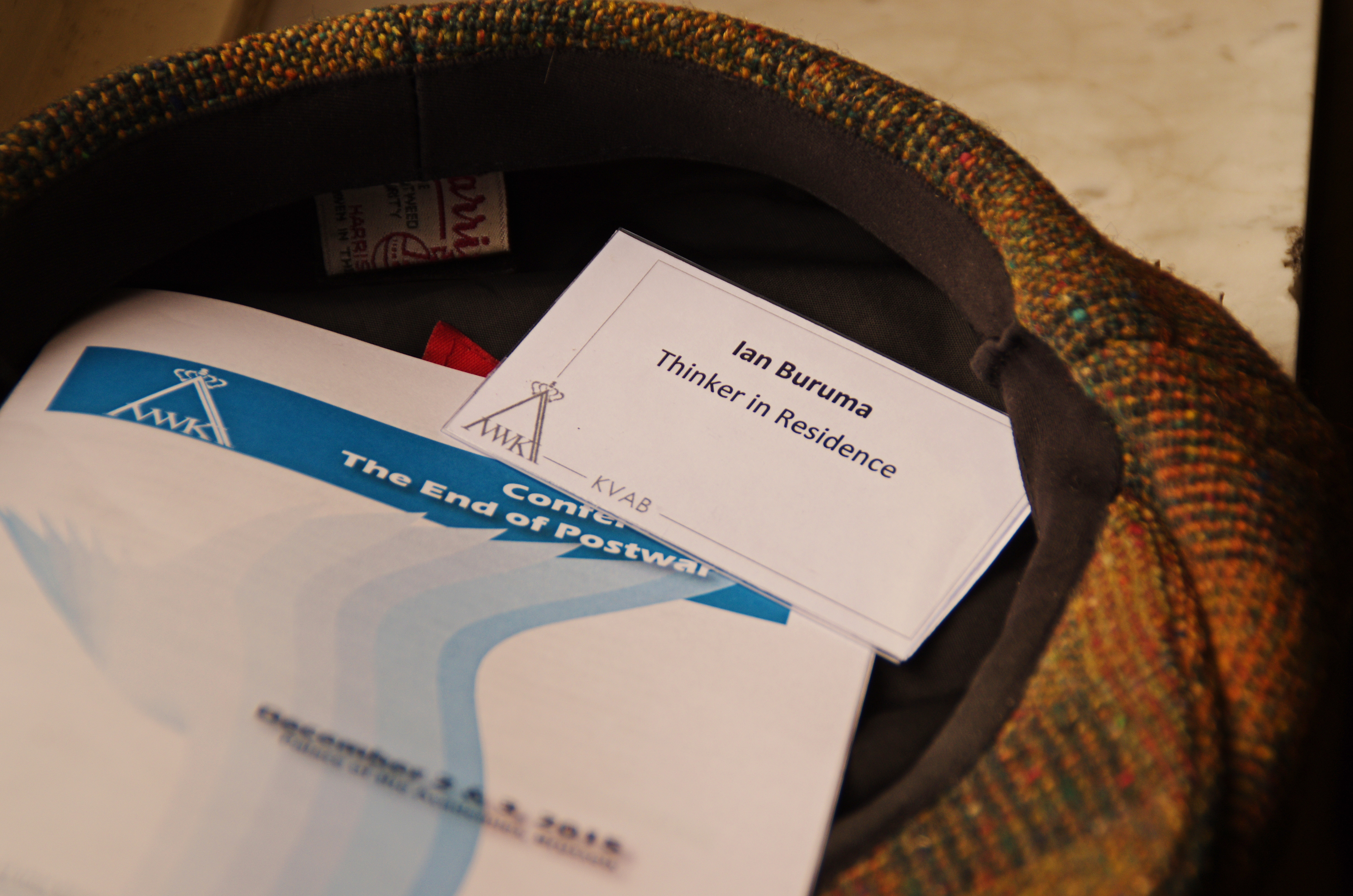Symposium: The End of Postwar

Symposium
02-12-2015
Paleis der Academiën, Brussel
The End of Postwar
Organisation
Class of the Humanities
Activity in the context of the Thinkers' cycle
The Thinker’s Programme around Ian Buruma starts from the observation that
an end has come to the political and social consensus that arose in Europe
after the catastrophe of World War II. That consensus concerned the
construction of welfare states, the belief in the strength of a united
Europe and faith in a pax Americana
The concluding two-day conference builds on two previous (closed) workshops debating on nationalism and populism, and how they help to undermine the post-war consensus. In his introduction, Ian Buruma re-examines the contours of this consensus and how it was built in Europe on the rubble of two world wars, with welfare, unification, and peace as its primary pillars. With the fall of the Wall and the demise of the Soviet Union after 1989, it looked for a while as if these pillars would be guaranteed for ever. When the communist threat disappeared, however, other forms of leftwing ideology, including social democracy, traditionally anti-communist, began to lose their appeal. In the ensuing vacuum, neoliberalism evolved into a pensée unique that, together with the revival of nationalism and populism, is eating away at the consensus and putting the role of the welfare state under increased pressure.
This diagnosis paints a pessimistic picture. What are the alternatives for the future?
The concluding two-day conference builds on two previous (closed) workshops debating on nationalism and populism, and how they help to undermine the post-war consensus. In his introduction, Ian Buruma re-examines the contours of this consensus and how it was built in Europe on the rubble of two world wars, with welfare, unification, and peace as its primary pillars. With the fall of the Wall and the demise of the Soviet Union after 1989, it looked for a while as if these pillars would be guaranteed for ever. When the communist threat disappeared, however, other forms of leftwing ideology, including social democracy, traditionally anti-communist, began to lose their appeal. In the ensuing vacuum, neoliberalism evolved into a pensée unique that, together with the revival of nationalism and populism, is eating away at the consensus and putting the role of the welfare state under increased pressure.
This diagnosis paints a pessimistic picture. What are the alternatives for the future?
Programme:
02-12-2015
1 Introduction to the theme: the break with the postwar consensus 10:00 - 11:00
Ian Buruma, Thinker-in-Residence (speaker)
2 Alternatives to neoliberalism 11:00 - 12:30
2.1 Democracy: The Twilight years
Tariq Ali, Writer, journalist, filmmaker (speaker)
2.2 Reimagined Communities
Bas Heijne, Writer, columnist NRC Handelsblad (speaker)
3 Lunch 12:30 - 13:30
4 The re-invention of the welfare state 13:30 - 15:30
4.1 Re-inventing the Welfare State
Erik Schokkaert, KU Leuven (speaker)
4.2 A European Social Union
Frank Vandenbroucke, Minister of State, Professor of Social Economic Analysis – UvA (speaker)
5 Utopias for our Times 15:30 - 17:00
Philippe Van Parijs, UCL (speaker)
First closing lecture
03-12-2015
6 Durability of humanism 10:00 - 12:00
6.1 Expulsions: When Complexity Produces Simple Brutalities
Saskia Sassen, Columbia University (speaker)
6.2 The Refugee Crisis in Germany and the Rise of Populism
Peter Schneider, Writer-in-Residence - Georgetown University (speaker)
7 Lunch 12:00 - 13:30
8 Europe as a durable answer to history 13:30 - 15:30
8.1 A National Rescue of the European Union
Paul Magnette, Ministre-Président de la Wallonie, Professor of Political Sciences - ULB (speaker)
8.2 The slow, unsteady spread of democracy and civil society
John Lloyd, Journalist Financial Times (speaker)
9 Closing lecture 15:30 - 17:00
Ian Buruma, Thinker-in-residence (speaker)

